ServiceNow Powers Highly Available, Massive-Scale Cloud Infrastructure with MariaDB
The Challenge
ServiceNow provides enterprises with software that allows employees to easily manage internal company requests (IT help, office equipment, etc.)—a concept that earned it the #1 spot on Forbes’ 2018 World’s Most Innovative Companies list. On its way to becoming one of the fastest-growing enterprise software companies with over $1 billion in revenue, ServiceNow was faced with unprecedented scalability challenges. To sustain its success, it needed a database infrastructure capable of supporting tens of petabytes of data, billions of queries, and 99.996% uptime. It found that and more in MariaDB.
HA and Stability for a “Multi-Instance, Scalable, Nonstop Cloud”
ServiceNow has deployed more than 85,000 MariaDB server instances to power its unique infrastructure, which is neither single-tenant nor multi-tenant, but rather multi-instance. Tim Yim, ServiceNow’s director of operations, refers to this setup as a “multi-instance, scalable, nonstop cloud,” where each customer gets its own database and its own front-end app tier, eliminating commingling of data and allowing for “surgical failover” and scaling – one customer at a time.
With hospitals, factories and power stations among ServiceNow’s clients, high availability and reliability are critical. With MariaDB, ServiceNow delivers 99.996% or greater availability, and redundancy is built into every layer of its cloud platform.
Each customer instance is running on bare metal, with hardware shared across the app tier and the database tier, and every piece of gear is duplicated to a different data center, as is every customer app node and database—and it’s all backed up nightly. MariaDB server instances power this system, enabling provisioning, HA, and failover to all be automated on top of the ServiceNow platform.
Consultation and Collaboration Ensure Success
ServiceNow depends heavily on MariaDB’s technical capabilities, but Yim notes that the relationship is about “more than just the technology,” citing two significant factors in the exceptional stability of its platform:
MariaDB training and support: Running as many databases as we have [and] … given that it’s a dynamic platform where the customers can write code, the query patterns change … it’s one of the most difficult platforms to tune. We got engaged with [MariaDB] support, and it’s been a fantastic relationship,” says Yim. It started in 2014 with a simple phone call, and MariaDB’s experts were soon scheduled to deliver on-site training to ServiceNow’s DBAs, sysadmins and the site reliability engineer. “From there, we really saw that the folks at MariaDB are on the right track,” recalls Yim, so ServiceNow progressed to working with a MariaDB enterprise architect on long-term strategies.
Collaborative development: MariaDB’s enterprise open source model is based on collaboration to drive innovation, and Yim says “ServiceNow is trying to get to a level where we are going to contribute back to these open source communities.” As a stakeholder in the MariaDB roadmap, ServiceNow has sponsored development of features that will be available in upcoming MariaDB Server releases. ServiceNow and MariaDB are working together on new features around a real-time data definition language, as well as plans to enhance encryption for cloud computing.
Learn more about MariaDB for ServiceNow On-Premises Deployments
Additional Resources

Do You Need Five 9s?

Do You Need Five 9s?
Learn More
Enterprise Architects from MariaDB



